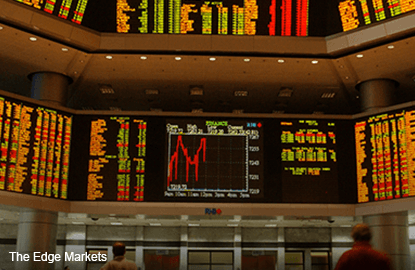
This article first appeared in The Edge Financial Daily, on January 8, 2016.
KUALA LUMPUR: Malaysia’s stock market is expected to continue to swing between positive and negative territory next week until China stabilises its stock and currency markets, said analysts.
Areca Capital Sdn Bhd chief executive officer Danny Wong is of the view that the local stock market will continue to go “up and down” in the course of next week.
“It will take one to two weeks to see if China has made any progress in stabilising its financial markets,” he told The Edge Financial Daily yesterday.
After charting gains over the past two days, the FBM KLCI fell 0.77% or 12.84 points to close at 1,655.13 yesterday as turmoil in China’s markets, caused by an accelerated depreciation of the yuan, dragged down regional markets. Market breadth was negative with 253 gainers compared to 721 losers.
A head of research at a local firm said weakness in regional markets, including Bursa Malaysia, will continue over the next week or so until the external factors stabilise.
“But generally, the year [2016] is off to a bad start,” he told The Edge Financial Daily.
Weaker China economic data dragged key regional markets, including the Malaysian stock market, into red territory on the first trading day, of 2016 on Monday. The FBM KLCI slipped 2.31%, but rebounded to chart gains over the past two days.
The ringgit fell 0.11% against the US dollar to close at 4.3953 yesterday, on the back of crude oil futures approaching the US$30 (RM131.70) per barrel mark, the lowest level in more than 11 years.
At the time of writing, the February futures contract for West Texas Intermediate crude was trading at 3% lower at US$32.95 per barrel, while the February contract for Brent crude was trading 2.42% lower at US$33.40 per barrel, the biggest slump since September.
The head of research noted that although the FBM KLCI fell yesterday, the market outperformed its regional peers, especially on a non-currency basis.
“I think it’s a more of a reaction to the poor performance last year. Since [the] FBM KLCI was one of the worst-performing markets last year, this time around it will naturally outperform its peers,” he said.
“If you look at [the regional markets’] fundamentals, there are no real reasons for them to collapse as they are doing at the moment, other than the yuan depreciation.
“Also, this time around the FBM KLCI is not reacting as negatively to the low oil prices, compared to last year,” he added.
Wong expects crude oil prices to remain volatile, as geopolitical factors such as the weight of tensions between Saudi Arabia and Iran over oil prices remain to be seen.
“There is still room for oil prices to come down. The tension in the Middle East is making it harder for them to work as one force, one voice,” he said.
Wong opined that with the ringgit hovering around the existing 4.40 level against the greenback, it could serve as an opportune time for foreign investors to return to the local market, as the downside to the FBM KLCI is mitigated by ValueCap Sdn Bhd’s RM20 billion injection to boost the stock market.
“ValueCap may see some value in certain stocks, particularly big caps, so that will form a safety net for a massive price drop for big caps. That also means that the downside of the FBM KLCI is mitigated by ValueCap’s investment,” he added.
Wong also said government-linked companies had also begun to bring back capital from overseas investments and are likely to park the capital either in properties or equities.
On Dec 31, 2015, Kumpulan Wang Persaraan (Diperbadankan) was reported to be planning a £270 million (RM1.73 billion) sale of an office building in central London, in line with the government’s call to repatriate offshore investments to help shore up the local market and currency.
Reuters reported Asian stocks slid across the board yesterday after China again guided the yuan sharply lower, while Shanghai shares tanked more than 7% and triggered a stock market circuit breaker for the second time this week. China’s stock markets were suspended for the day less than half an hour after the open as a new circuit-breaking mechanism was tripped for the second time this week.
The Hang Seng Index fell 3.09%, South Korea’s Kospi index was down 1.1% and the Nikkei 225 closed 2.33% lower.